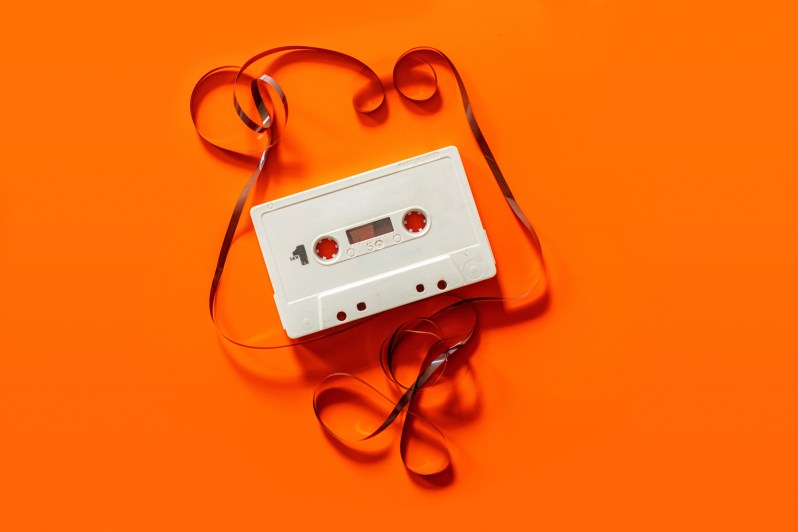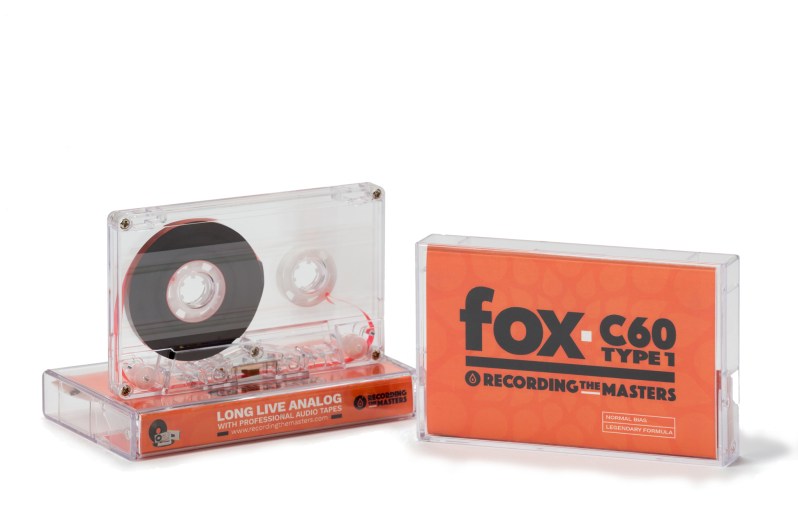Look out vinyl, the cassette tape is back. Nostalgia is part of the trend but there’s actually more to it than that.
According to Forbes, tapes experienced a relatively staggering 20% sales growth last year alone, putting them ahead of their vinyl counterparts. Since 2011, sales have quadrupled. It’s the kind of boon that puts the lights back on in places like the National Audio Company. There’s even a widely recognized Cassette Store Day (October 12) to celebrate the medium. All told, it’s music to the ears of audiophiles, the tape industry, and cars with dated music systems alike.

Why the rise in popularity? Well, we’re very enamored of the ’90s, that’s for certain (does that mean the compact disc is next in line?). Economics plays a big role, too. Tapes are cheaper to produce, while still offering a richness of sound that’s hard to come by in the streaming era. Bands appreciate the low cost, as well as the speedy turnaround time. Pressing a vinyl record, while cool in its own timeless and tangible way, takes an eternity in comparison. A tape can be produced in a matter of days and is easy to pack along and sell on tour.
It’s a very real thing for indie labels like Burger Records in southern California, POST/POP out of London, and more. They’re taking advantage of the industrious nature of the cassette, along with its retro-cool factor. And it’s not just a counterculture move within music. Big-name acts like Jay-Z, Taylor Swift, and Lana Del Rey have released albums in this format.
For older music fans, it’s a way to become reacquainted with something from their formative years. For the younger crowd, it’s simply something new and wondrous, as they didn’t grow up troubleshooting stuck cassettes.

There’s also a subtle revolt against digital sound at play. Anybody who’s enjoyed the room-filling resonance and dull crackle of a good 45 understands as much. There’s a similar high fidelity tied to cassette tapes. You can physically hold the music. And you’re in control, playing, pausing, repeating, and flipping at your leisure, without any annoying ads from your “free” streaming service of choice.
Also, the tape brings a rather fetching element back to playlist culture. People are hungry for a means of creating a mixtape that involves more than just clicking and dragging. Enter the actual mixtape, straight outta 1990. Stitching together tracks on tape requires more labor and is, therefore, more rewarding. It’s like creating a collage out of your favorite tracks. Plus, you get to pen your own handwritten liner notes.
“With many people increasingly experiencing ‘digital fatigue,’ cassettes — like vinyl before them — are being rediscovered by people across generations from all walks of life.”
Jean-Luc Renou is the CEO of Mullan, an international industrial outfit specializing in magnetic goods. The firm does significant business with audio professionals in the analog arena. One of the company’s major projects is RecordingTheMasters (RTM), which continues to revive old recordings as well as create new ones for artists across the globe. With the renewed interest in reel-to-tape manufacturing, Renou and Co. have been busy.
In addition to the tangibility factor, Renou cites the hiss of the cassette tape as one of its many draws. He calls it “analog warmth” and it brings a certain charm to the sonic table. “Now, with many people increasingly experiencing ‘digital fatigue,’ cassettes — like vinyl before them — are being rediscovered by people across generations from all walks of life,” Renou says. “They also remain a quick and effective way for artists to distribute their music at a reasonable cost.”
“While the technology is being refined all the time, the essence of what goes into making a quality cassette has remained the same over the years,” he adds. “The challenge today is less about innovation but more about maintaining consistency in quality and moving forward with a dwindling supply of human expertise and machinery in what is quite a sophisticated manufacturing process.”
So long as the demand for tape exists, the joys of analog music will persist. RTM is taking it to the next level, sponsoring workshops featuring the likes of Steve Albini. They continue to support analog recording sessions for rising bands and aid beginners in the use and calibration of analog machinery.
Dust off your old tape deck, be on the lookout for cassettes the next time you’re at a show, and savor the many advantages that come with a real recording.


